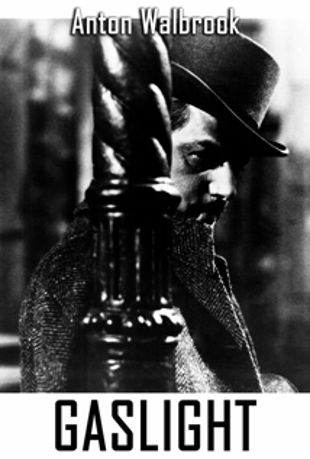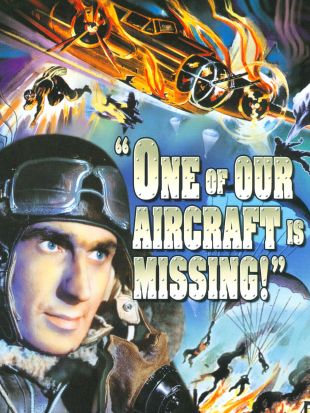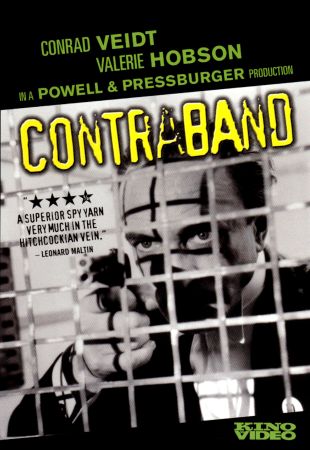Liverpool-born film executive John Corfield was mostly known for his stewardship of British National, the small studio he operated from 1934 until 1948, which became very important in the early '40s. British National was formed in 1934, when Corfield, then a producer, brought about a meeting between J. Arthur Rank, a devout Methodist and flour millionaire, and Lady Yule, the widow of jute magnate David Yule. Both were concerned with the state of morality in cinema, which had been the subject of much commentary at the time, and they decided to finance British National with the intention of producing religious films that would present uplifting stories and messages. It never seemed to work out exactly that way, however, and the resulting production company, using the the facilities of what had been known as the Rock Studio, at Elstree, and with Corfield in charge, ended up releasing a succession of mostly low-budget thrillers and comedies. Most of British National's output of the 1930s was bottom-of-the-bill fare in England, and virtually none of it was ever even seen anywhere else. In 1937, Rank sold his shares in the company to Lady Yule, who left Corfield in charge. Then, late in 1939, British National began taking a much more ambitious approach to making movies. Corfield let it be known that, within the constraints of his available budget, he was willing to back more substantial film projects. It was a fortuitous decision, and one that, less than a year later, would transform Corfield -- a cautious businessman at all times -- into one of the more important film industry executives in England. War had broken out in September of 1939, though the fighting would be confined mostly to the east for the next six months; Britain's film industry, along with the rest of its economy and business community, was left in crisis. No one was sure what would happen to the economy, or the availability of financing, especially for an industry that was not deemed militarily essential. (One must also remember that these events were unfolding only 21 years after the end of the First World War, which had nearly bled Britain dry, militarily and economically). And in the midst of it all, in the spring of 1940, the biggest movie producer in all of England, Alexander Korda, closed his studio and moved his entire operation to America in order to finish work on The Thief of Bagdad. A lot of producers and directors were left in a precarious position by Korda's move, and while numerous filmmakers were anxious to keep working, and doing movies that, in many instances would prove important (directly or indirectly) to the war effort, it was difficult to know what could or couldn't be made.
Corfield's British National, which had been virtually inactive across most of 1939, suddenly, in 1940, found filmmakers who needed a home for their projects, and he was willing to oblige. British National's output that year soared, along with the quality of movies it released. The latter included everything from the regionally popular comedies in the "Old Mother Riley" series (which were not important movies in any respect, except to the extent that they helped keep up morale on the homefront, by which standard they were enormously important) to Thorold Dickinson's masterful thriller Gaslight (1940), starring Anton Walbrook and Diana Wynyard. The latter was so impressive that MGM snapped up the rights and, later, the movie, suppressing the latter and shooting a mega-budgeted remake with Ingrid Bergman and Charles Boyer; it was a crowing irony of Corfield's career that the biggest success he ever had as a producer was unseen for almost half a century, as a by-product of its success and MGM's machinations; the man would also probably love to have known that, as late as 2009, some 70 years after its release, at a point when it was long available on DVD and to television, British National's Gaslight could still pull a capacity crowd into a theater in New York City.
The most historically significant movie financed by Corfield, however, was Michael Powell's Contraband, based on a script by Emeric Pressburger. Powell and Pressburger were not yet organized corporately as The Archers. They were professionally treading water in the wake of Korda's departure and trying to aid the war effort, and Contraband (1940) -- which was one of the most effective romantic thrillers of the early part of the war -- did all of that, and also helped keep the partnership together. And as a result, the two, working in tandem, soon after delivered with Forty-Ninth Parallel (1941), which, in turn, spawned The Archers.
Although British National seldom moved out from behind the shadow of the Rank Organisation as the latter expanded its production in new and ambitious directions during the early/middle 1940s, it did get some important pictures made, including Love on the Dole (1941), starring a young Deborah Kerr; Penn of Pennsylvania (1941), starring Clifford Evans; and Pimpernel Smith (1941), directed by and starring Leslie Howard. And occasionally, when Rank declined to finance a movie for whatever reason, Corfield was able to open his company's checkbook to get it made, the most important instance of the latter was Powell and Pressburger's One of Our Aircraft Is Missing (1942). Of course, the company's capitalization was never a match for the kind of financial muscle that Korda or Rank's company could bring to bear -- Corfield and his Elstree-based National Studios were never going to be in a position to make a Henry V or A Matter of Life and Death -- but he came through at those moments that he was most needed. And Michael Powell, in his book A Life in Movies, called Corfield "one of those men who are scared to death by every decision they make, but can't resist making them." The quality of British National's releases slackened in the mid-'40s, though it was still generating good, solid low-budget features, such as Appointment With Crime (1945), and Corfield was still producing pictures right up until 1948, when the company shut down. Corfield passed away five years later, in 1953.


